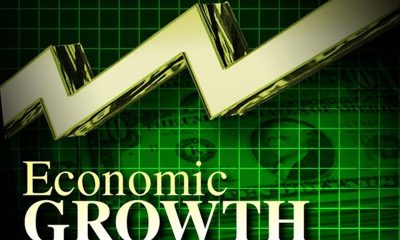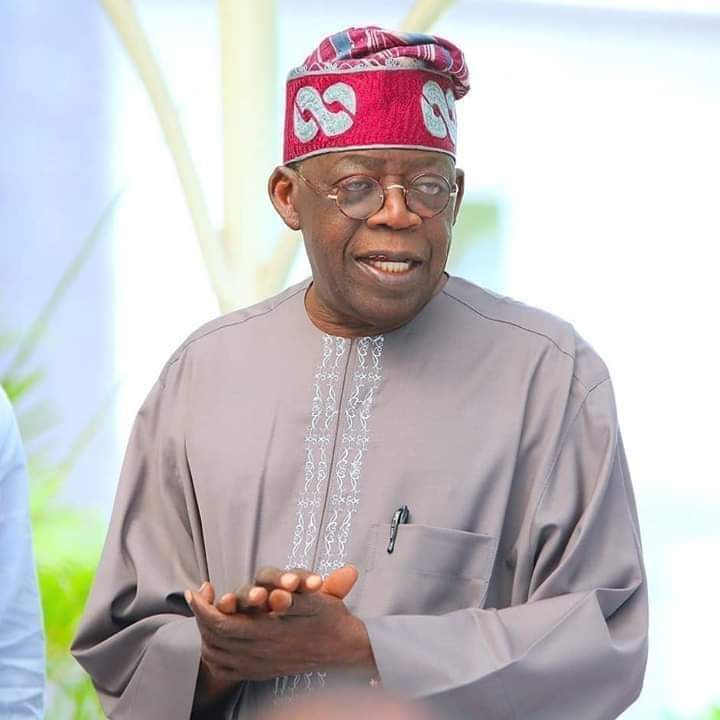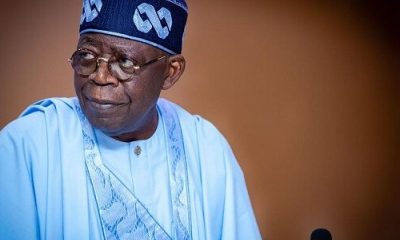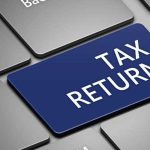Economy
FBNQuest Sees Tinubu Implementing Reforms to Stimulate Economic Growth, Investment
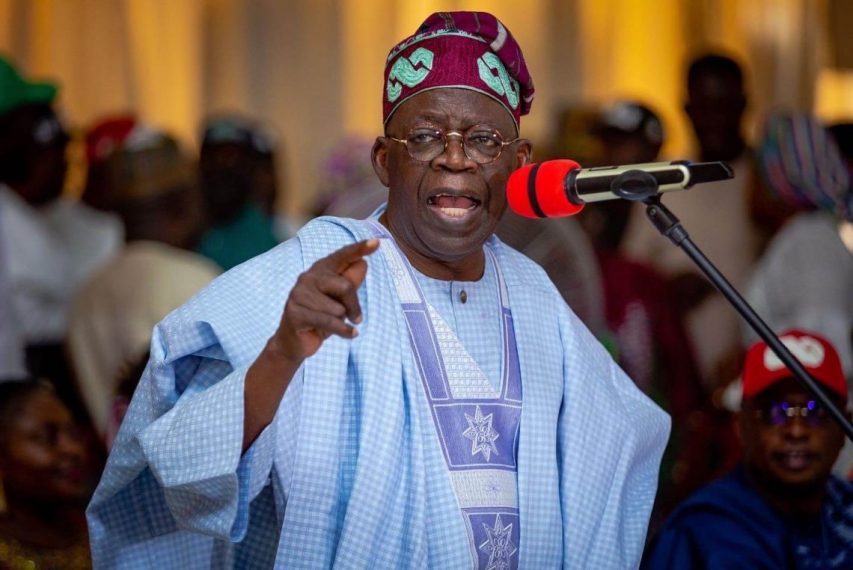
By Dipo Olowookere
With the presidential election concluded and Mr Bola Tinubu declared by the Independent National Electoral Commission (INEC) as the winner, FBNQuest believes that the president-elect will likely implement some reforms that will trigger economic growth and investment in the second half of the year.
President Muhammadu Buhari is expected to hand over power to his successor on May 29, 2023, after serving for eight years in two terms of four years each.
At the presidential poll held on Saturday, February 25, 2023, Mr Tinubu of the ruling All Progressives Congress (APC) won by over 8 million votes and was trailed by Mr Atiku Abubakar of the Peoples Democratic Party (PDP), and Mr Peter Obi of the Labour Party (LP).
The two runners-up have challenged the outcome of the exercise, both laying claims to the top position.
In its outlook for 2023, FBNQuest, the unified brand identity for the merchant banking and asset management businesses of FBN Holdings Plc, through one of its top shots, Mr Tunde Abidoye, fears that, “Nigeria’s new president faces several challenges, including the fiscal pressures related to fuel subsidies, a huge budget deficit, difficulties with forex liquidity and low productivity in the oil sector.”
“Nevertheless, we expect a new manager’s bounce for the economy that will support the moderate rise in equities while interest rates are expected to remain elevated,” Mr Abidoye, the Head of Research, Macroeconomics and Fixed Income at FBNQuest, added.
The firm stated that based on its research, Nigeria’s economy would grow by 3.2 per cent this year, marginally higher than 3.1 per cent in 2022.
Concerning non-oil sector growth, the report pointed out that non-oil GDP growth had averaged 4.7 per cent y/y over the past eight quarters up to the fourth quarter of 2022 compared with 0.4 per cent in the previous eight quarters.
More recently, the services sectors, which accounted for around 56 per cent of the economy in Q4 ‘22, expanded by 5.7 per cent in the fourth quarter of 2022.
FBNQuest forecasts another positive year for equities in 2023, projecting gains of 15 per cent amid a slow first half and relatively strong performance in the second half of the year. In the fixed-income market, FBNQuest expects market yields to remain elevated through Q1 2023 and most of the rest of the year.
Economy
LIRS Shifts Deadline for Annual Returns Filing to February 7

By Aduragbemi Omiyale
The deadline for filing of employers’ annual tax returns in Lagos State has been extended by one week from February 1 to 7, 2026.
This information was revealed in a statement signed by the Head of Corporate Communications of the Lagos State Internal Revenue Service (LIRS), Mrs Monsurat Amasa-Oyelude.
In the statement issued over the weekend, the chairman of the tax collecting organisation, Mr Ayodele Subair, explained that the statutory deadline for filing of employers’ annual tax returns is January 31, every year, noting that the extension is intended to provide employers with additional time to complete and submit accurate tax returns.
According to him, employers must give priority to the timely filing of their annual returns, noting that compliance should be embedded as a routine business practice.
He also reiterated that electronic filing through the LIRS eTax platform remains the only approved method for submitting annual returns, as manual filings have been completely phased out. Employers are therefore required to file their returns exclusively through the LIRS eTax portal: https://etax.lirs.net.
Describing the platform as secure, user-friendly, and accessible 24/7, Mr Subair advised employers to ensure that the Tax ID (Tax Identification Number) of all employees is correctly captured in their submissions.
Economy
Airtel on Track to List Mobile Money Unit in First Half of 2026—Taldar

By Adedapo Adesanya
The chief executive of Airtel Africa Plc, Mr Sunil Kumar Taldar, has disclosed that the company is still on track to list its mobile money business, Airtel Money, before the end of June 2026.
Recall that Business Post reported in March 2024 that the mobile network operator was considering selling the shares of Airtel Money to the public through the IPO vehicle in a transaction expected to raise about $4 billion.
The firm had been in talks with possible advisors for a planned listing of the shares from the initial public offer on a stock exchange with some options including London, the United Arab Emirates (UAE), or Europe.
However, so far no final decisions have been made regarding the timing, location, or scale of the IPO.
In September 2025, the telco reportedly picked Citigroup Incorporated as advisors for the planned IPO which will see Airtel Money become a standalone entity before it can attain the prestige of trading on a stock exchange.
Mr Taldar, noted that metrics continued to show improvements ahead of the listing with its customer base hitting 52 million, compared to around 44.6 million users it had as of June 2025.
He added that the subsidiary processed over $210 billion in a year, according to the company’s nine-month financial results released on Friday.
“Our push to enhance financial inclusion across the continent continues to gain momentum with our Mobile Money customer base expanding to 52 million, surpassing the 50 million milestone. Annualised total processed value of over $210 billion in Q3’26 underscores the depth of our merchants, agents, and partner ecosystem and remains a key player in driving improved access to financial services across Africa.
“We remain on track for the listing of Airtel Money in the first half of 2026,” Mr Taldar said.
Estimating Airtel Money at $4 billion is higher than its valuation of $2.65 billion in 2021. In 2021, Airtel Money received significant investments, including $200 million from TPG Incorporated at a valuation of $2.65 billion and $100 million from Mastercard. Later that same year, an affiliate of Qatar’s sovereign wealth fund also acquired an undisclosed stake in the unit.
The mobile money sector in Africa is expanding rapidly, driven by a young population increasingly adopting technology for financial services, making the continent a key market for fintech companies.
Economy
Crypto Investor Bamu Gift Wandji of Polyfarm in EFCC Custody
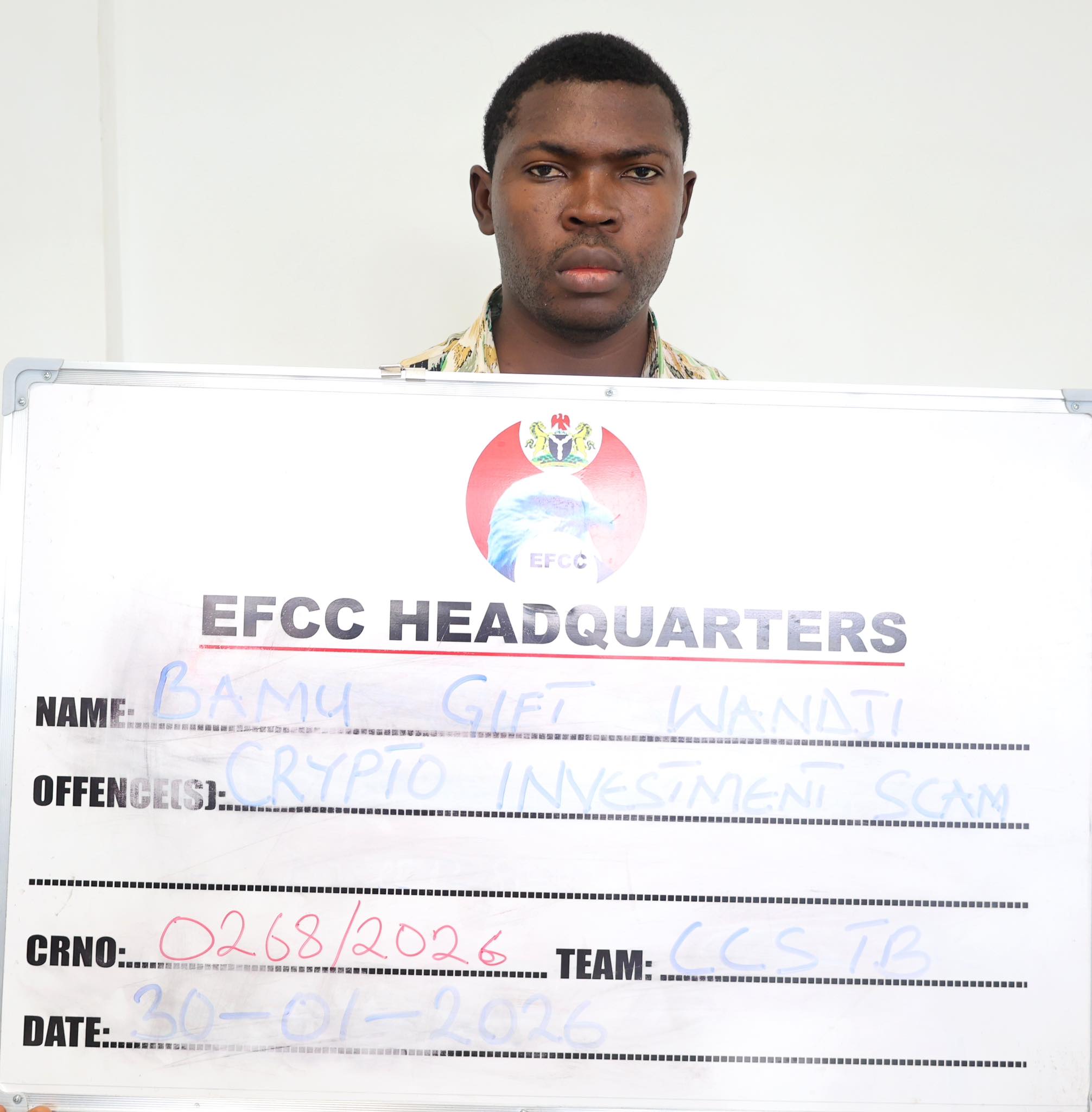
By Dipo Olowookere
A cryptocurrency investor and owner of Polyfarm, Mr Bamu Gift Wandji, is currently cooling off in the custody of the Economic and Financial Crimes Commission (EFCC).
He was handed over to the anti-money laundering agency by the Nigerian Security and Civil Defence Corps (NSCDC) on Friday, January 30, 2026, after his arrest on Monday, January 12, 2026.
A statement from the EFCC yesterday disclosed that the suspect was apprehended by the NSCDC in Gwagwalada, Abuja for running an investment scheme without the authorisation of the Securities and Exchange Commission (SEC), which is the apex capital market regulator in Nigeria.
It was claimed that Mr Wandji created a fraudulent crypto investment platform called Polyfarm, where he allegedly lured innocent Nigerians to invest in Polygon, a crypto token that attracts high returns.
Investigation further revealed that he also deceived the public that his project, Polyfarm, has its native token called “polyfarm coin” which he sold to the public.
In his bid to promote the scheme, the suspect posted about this on social media platforms, including WhatsApp, X (formally Twitter) and Telegram. He also conducted seminars in some major cities in Nigeria including Kaduna, Lagos, Port Harcourt and Abuja where he described the scheme as a life-changing programme.
Further investigation revealed that in October, 2025, subscribers who could not access their funds were informed by the suspect that the site was attacked by Lazarus group, a cyber attacking group linked to North Korea.
Further investigations showed that Polyfarm is not registered and not licensed with SEC to carry out crypto transactions in Nigeria. Also, no investment happened with subscribers’ funds and that the suspect used funds paid by subscribers to pay others in the name of profit.
Investigation also revealed that native coin, polyfarm coin was never listed on coin market cap and that the suspect sold worthless coins to the general public.
Contrary to the claim of the suspect that his platform was attacked, EFCC’s investigations revealed that the platform was never attacked or hacked by anyone and that the suspect withdrew investors’ funds and utilized the same for his personal gains.
The EFCC, in the statement, disclosed that Mr Wandji would be charged to court upon conclusion of investigations.
-

 Feature/OPED6 years ago
Feature/OPED6 years agoDavos was Different this year
-
Travel/Tourism9 years ago
Lagos Seals Western Lodge Hotel In Ikorodu
-

 Showbiz3 years ago
Showbiz3 years agoEstranged Lover Releases Videos of Empress Njamah Bathing
-

 Banking8 years ago
Banking8 years agoSort Codes of GTBank Branches in Nigeria
-

 Economy3 years ago
Economy3 years agoSubsidy Removal: CNG at N130 Per Litre Cheaper Than Petrol—IPMAN
-

 Banking3 years ago
Banking3 years agoSort Codes of UBA Branches in Nigeria
-

 Banking3 years ago
Banking3 years agoFirst Bank Announces Planned Downtime
-

 Sports3 years ago
Sports3 years agoHighest Paid Nigerian Footballer – How Much Do Nigerian Footballers Earn


